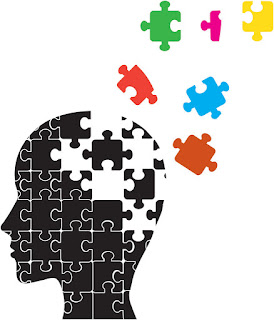Advances in science and general wellbeing are expanding life span and upgrading the personal satisfaction for individuals around the globe. 14 visionaries are uncovering energizing patterns and bits of knowledge with respect to solid life span, sharing their vision for a superior future. The Longevity Innovators interviews feature new revelations in biomedical and psychosocial science, just as methodologies to advance avoidance and health for more seasoned grown-ups.
Studies have demonstrated that incoherence — an intense confusional express that creates despite intense sickness, hospitalization, medical procedure, anesthesia and prescriptions — can prompt long haul psychological decrease and, conceivably, dementia. The correct instruments of how ridiculousness influences the maturing mind stay tricky, and this is a territory of dynamic research for my gathering. Looks at the pathophysiologic premise and biomarkers for wooziness. Utilizing electroencephalography and practical imaging, we will look at its relationship to Alzheimer's malady biomarkers, fiery biomarkers, neuroimaging changes and markers of cerebrum versatility.
What are the most critical parts of building brain health? It is safe to say that we are missing key data about enhancing brain health?
The most essential parts of building brain health are: work out, solid eating routine, satisfactory rest, keeping away from tobacco and inordinate liquor, decreasing heftiness and treating hypertension and diabetes. In any case, insufficient consideration is being paid to securing the mind amid ailment, hospitalization, and medical procedure — times when the maturing cerebrum is incredibly powerless against harm that may not be reversible.
Much should be possible to avert ridiculousness in these settings — for example, giving early versatility and exercise, lessening utilization of immobilizing gadgets (like bed and seat alerts), guaranteeing introduction and intellectually invigorating exercises, improving rest without prescriptions, staying away from drying out and ailing health and limiting utilization of psychoactive medications — those that unfavorably influence the mind, for example, dozing drugs and sedatives.
What do you believe is the most critical thing individuals presently can't seem to find out about the mind?
The mind is inconceivably strong, and numerous individuals in their 90s never build up any subjective impedance. We have to figure out how to upgrade this flexibility and keep the cerebrum very utilitarian for the duration of our lives, even with an introduction to the numerous unfavorable elements that are a piece of day by day life for us all.
Since daze is particularly regular in patients with Alzheimer's sickness, how are the researchs affected the perspectives about the ailment?
Understanding where the cerebrum intensely turns out badly holds such a large number of essential exercises for the treatment of Alzheimer's ailment. Given that there is developing proof that ridiculousness can prompt drastically quickened psychological decrease in those both with and without Alzheimer's infection, it speaks to a basic crossroads where mediation may in a general sense modify clinical course.
Insanity and Alzheimer's illness share numerous fundamental pathophysiologic patrons, along these lines, averting incoherence may, thusly, keep Alzheimer's ailment.
Intense disease and hospitalization happen as a major aspect of regular maturing for most more established grown-ups. Wooziness happens in a generous extent of these occasions and ensuring individuals can endure and recuperate well is a piece of our main goal.
Also, our examination in ridiculousness — and how intense stressors influence the mind — will propel our comprehension of how to enable the cerebrum to age effectively.
Can individuals with Alzheimer's and different dementias have a positive personal satisfaction?
Undoubtedly. Thinking about several individuals with Alzheimer's and related dementias, and my essential objective is to encourage them and their families expand their personal satisfaction. There is so much that should be possible to improve the personal satisfaction, extending from tending to day by day exercises to living circumstance to socialization to discovering approaches to keep them dynamic and locked in.
Likewise attempts to enable the parental figures to comprehend the restrictions while benefitting as much as possible from the circumstance. The points of interest subtleties of living need to change with dementia, yet the personal satisfaction require not be lessened in the early and moderate stages.

Comments
Post a Comment